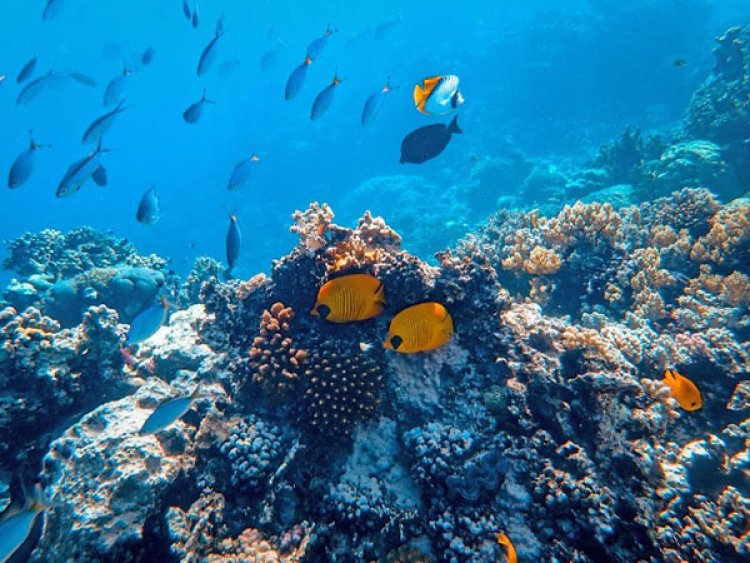Study reveals what ancient underwater food webs can tell us about the future of climate change

Washington, US: Have humans wreaked too much havoc on marine life to halt damage? New analysis challenges the idea that ocean ecosystems have barely changed over millions of years, pointing scientists down a new path in conservation efforts and policy.
Some scientists claim that food webs in the oceans have seen very little change over the last 540 million or so years. However, a team of UNLV researchers has revealed that some ancient food webs were actually very different from today.
The study, published in the latest edition of the journal Frontiers in Ecology and Evolution, used fossils to rebuild four different marine food webs from the days when dinosaurs roamed the earth over 65 million years ago. The food webs were also compared to a reconstructed food web from a modern Jamaican reef. The result? The four ancient food webs varied greatly from one another, and the youngest one was not the most similar to today's Jamaican coral reefs.
Researchers say the findings point to big changes in the structure of marine ecosystems since they first evolved, and that when looking at conservation and restoration plans, damage to these structures over time caused by humans can impact the ability to fix imbalances and ward off extinction of the species living within them.
"Learning how food webs work is very important for conservation because it helps scientists predict how ecosystems will respond to climate change," said study co-author Carrie Tyler, a marine conservation paleobiologist and assistant professor in the UNLV department of geoscience.
"There is an interconnectedness and dependency between each member, which means when a stressor affects one species, it will ultimately affect the rest of the web," she said. "If a species is removed from the structure, the function in the food web may no longer be fulfilled because of the missing piece."
Tyler said this can make it difficult to reintroduce species down the road, as their functions may no longer fit into the structure. "Using paleontology in this way can help us understand what we should be saving and how to save it, giving us another way to look at conservation efforts."
Added Roxanne Banker, a UNLV postdoctoral researcher working with Tyler: "By studying these structures over time, we can find ways to promote more resilient communities now, and in the future."















































